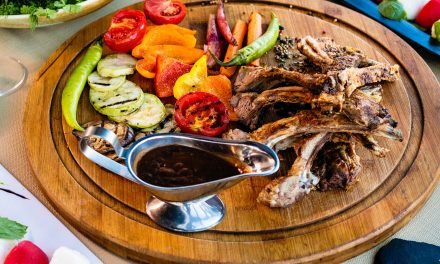As a food enthusiast and a firm believer in the importance of halal dietary choices, I embarked on a fascinating journey to uncover the halal status of wagyu beef. In this comprehensive guide, I will delve into the intricacies of halal certification, the religious perspectives surrounding consuming exotic meats, and provide a definitive answer to whether wagyu beef can be enjoyed with confidence by those adhering to halal principles.
Exploring Halal Wagyu Beef
Wagyu beef originates from Japan and is renowned for its intense marbling, buttery texture, and rich flavor. Wagyu literally translates to “Japanese cow” and refers to four native Japanese breeds:
- Kuroge Washu
- Akage Washu
- Mukaku Washu
- Tajima-gyu
The high percentage of intramuscular fat is what gives Wagyu its unique taste and tenderness.
Outside of Japan, Wagyu cattle are crossbred with Angus cattle to produce “American style” Wagyu beef. This has increased the availability and affordability of Wagyu worldwide.
“Wagyu is desired by chefs and diners alike for its succulent taste and soft texture. With its smooth flavour, it enhances any dish its added to.”
With the growing popularity of Wagyu beef, many consumers specifically Muslims are asking:
Is Wagyu beef halal?
This article will analyze the slaughter and preparation methods required for Wagyu beef to be considered halal.
Background on Halal Food Requirements
For meat to be considered halal in Islam, it must meet certain requirements in how the animal is slaughtered and prepared:
- The animal must be alive and healthy at the time of slaughter
- The slaughter must be performed by a Muslim reciting tasmiyah (prayer)
- The neck must be cut by a sharp knife severing the carotid artery, jugular vein and windpipe
- All blood must be completely drained from the body
“Halal slaughter requires the animal to be alive and healthy before it is killed, a sharp knife is used to perform the slaughter, which must cut the throat and windpipe causing the blood to drain out.”
Additionally, the meat must not be from any animal prohibited by Islamic law:
- Pork
- Carnivorous animals
- Birds of prey
- Reptiles
| Permitted Animal Sources | Prohibited Animal Sources |
|---|---|
| Cattle | Pork |
| Sheep | Carnivores |
| Goats | Birds of Prey |
| Camels | Reptiles |
Meeting these conditions allows Muslims to eat meats that are “halal” or permissible under their faith.
Is Wagyu Beef Halal?
The Wagyu cattle breed itself is not haram or prohibited for consumption in Islam. However, for Wagyu beef to be certified halal, it must meet the Islamic requirements for slaughter:
“We are often asked if Wagyu beef itself is halal. The answer is yes, Wagyu cattle are halal by nature.”
The key considerations are:
- The cattle must face Mecca during slaughter.
- A Muslim blessing is recited over each animal.
- The throat is slit with a sharp knife to drain out all blood.
“All our Wagyu beef is slaughtered by hand; the animal faces Makkah, is blessed beforehand and a sharp knife is used to slit the throat allowing all blood to drain.” – Tom Hixson
As long as these guidelines are followed, Wagyu beef can meet halal standards. Many Wagyu producers offer specialty halal lines to accommodate Muslim diners.
Some additional steps may include:
- Stunning cattle with a non-penetrative stun gun prior to slaughter
- Removing spinal cord during processing
- Not mixing halal and non-halal meat during processing
So in summary, Wagyu beef is not inherently haram, and can be made halal through observance of Islamic slaughter practices.
Sourcing Halal Wagyu
As the demand for halal Wagyu beef grows globally, more producers are offering certified options:
Some popular online vendors selling halal Wagyu include:
- Tom Hixson – UK-based butcher offering Japanese Wagyu and American Wagyu
- Tariq Halal Meats – US provider of Miyazaki and Kobe style halal Wagyu
- The Meatery – Halal butcher based in UK with A5 Wagyu cuts
Halal Wagyu is also increasingly available globally at premium steakhouses and halal butcher shops. Prices are comparable to high-end non-halal Wagyu, ranging from:
- $50-$150 per pound for American Wagyu
- $200-$500+ per pound for imported Japanese A5 Wagyu
For discerning Muslim customers, sourcing authentic, top-tier halal Wagyu is now easier than ever.
Cooking and Eating Halal Wagyu
When preparing halal Wagyu beef, these guidelines should be followed:
- Use separate utensils and surfaces from those that touched pork or alcohol
- Cook until the internal temperature reaches at least 145°F for food safety
- Do not overcook! Cook quickly over high heat to sear and lock in juices
“We recommend searing Wagyu over high heat for just 1-2 minutes per side. This caramelizes the marbling and brings out the buttery, beefy flavor.”
Wagyu can be enjoyed in simple preparations to appreciate its rich, intrinsic flavor:
- Grilled Wagyu steak
- Pan-seared Wagyu tataki
- Wagyu beef carpaccio
Many sides pair well with Wagyu’s richness:
- Roasted or mashed potatoes
- Sauteed mushrooms
- Steamed asparagus or green beans
For seasoning, stick to simple accents like cracked pepper, sea salt, garlic, or horseradish. The umami intensity of high-quality Wagyu really shines when the natural flavors are highlighted.
Conclusion
In summary, authentic Wagyu beef can meet halal standards for observant Muslim diners. While the cattle breed itself is not prohibited, care must be taken to slaughter the animals according to Islamic ritual:
- Facing Mecca
- Reciting blessing
- Draining all blood
As demand increases globally, more Wagyu producers are offering halal-certified lines. This makes it easier for Muslims to source top-tier Japanese A5 Wagyu that aligns with their dietary needs.
When cooked properly to enhance its rich marbling, halal Wagyu beef offers an unparalleled dining experience for Muslim food lovers. Its versatility also allows for pairing with varied cuisines and flavors.
For those seeking the highest quality beef that meets both gourmet and religious standards, halal Wagyu provides the perfect solution.




